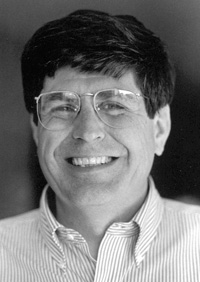BSL Miniatures: Transport Phenomena in Chemical and Biological Microsystems
Lecture by Klavs F. Jensen
Professor
Department of Chemical Engineering
Massachusetts Institute of Technology
Tuesday, September 17, 2002
Room 1800 Engineering Hall
Lecture at 1:00 p.m.
Reception at 12:30 p.m. in the Cheney Room.
In Honor of Three Eminent Chemical Engineers and Educators
Microfabrication techniques and scale-up by replication have fueled spectacular advances in the electronics and telecommunications industries, and more recently, in microanalysis chips for chemical and biological applications. Besides analytical devices, microsystems have potential applications in synthesis by chemical reactions and biological processes. Synthesis applications are enhanced by chemical and biological information gained from integrating microfluidic components with sensors and actuators. The reduction in size and integration of multiple functions has the potential to produce microprocessing systems with capabilities exceeding those of conventional macroscopic systems. In particular, the integration of analytical techniques with synthesis promises to yield a wide range of novel devices for high throughput screening, reaction kinetic and mechanism studies. Cases studies are used to illustrate potential applications of microsystems with emphasis on transport phenomena. Examples include (i) extraction of chemical kinetics from microreactors integrated with analytical sensors, (ii) gas-liquid flows in microchannels and micropacked beds for chemical synthesis, (iii) heat transfer in microsystems for fuel reforming, and (iv) electric field based separations of cellular fragments. Microsystems also facilitate experimentation in chemical engineering education by enabling simple, safe demonstrations of fundamental transport and reaction processes. I discuss the possible impact of microsystems on chemical engineering practice, as well as research and educational challenges to realize the potential of microsystems.
 |
Klavs F. Jensen is the Lammot du Pont Professor of Chemical Engineering and Professor of Materials Science and Engineering at the Massachusetts Institute of Technology. His research interests revolve around microfabrication, testing, integration and scale-up of microfluidic systems for chemical and biochemical discovery and processing. Chemical kinetics and transport phenomena related to processing of materials for electronic and optical applications are also topics of interest along with development of simulation approaches for reactive systems, specifically simulation across multiple length and time scales. He is the co-author of more than 330 publications including several edited volumes. He is the recipient of several awards, including a National Science Foundation Presidential Young Investigator Award, a Camille and Henry Dreyfus Foundation Teacher-Scholar Grant, a Guggenheim Fellowship, and the Allan P. Colburn, R. H. Wilhelm, and Charles C. M. Stine Awards of the American Institute of Chemical Engineers. He was elected to the National Academy of Engineering in 2002.
